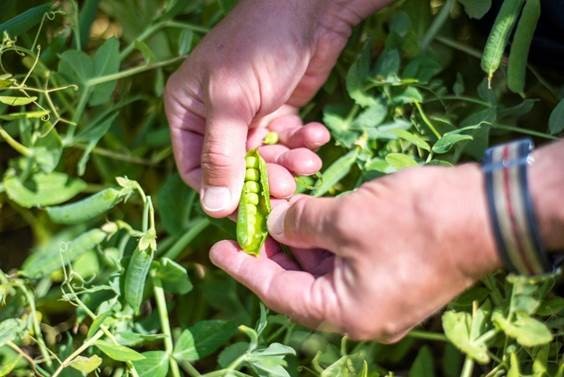Week-long initiative to put spotlight on Britain's 700 pea growers

A week-long celebration of one of Britain's favourite vegetables and the 700 farmers who produce it will commence in July.
The UK’s annual celebration of the British pea harvesting season will return for its eighth year between 3 – 9 July.
The week, which is spearheaded by British Growers Association (BGA), will celebrate British production and educate the public on how every season gets billions of peas from field-to-fork.
The largest producer and consumer of frozen peas in Europe is the UK, with the average person in Britain eating nearly 9,000 peas per year.
And this July, approximately 700 pea growers, who work within 16 different grower groups, will harvest 2 billion portions of peas to feed Britain for the year.
Figures show that the UK is 90% self-sufficient in pea production, according to BGA's yearly campaign, 'Yes Peas'.
Lasting an average of six to eight weeks, the harvesting process is a complex operation.
Farmers work using viners to harvest, shell and transport the peas from field to frozen as quickly as possible – the majority in just 150 minutes.
The hi-tech machinery and exact precision needed during harvesting requires growers to collaborate to produce the crop.
There are currently 18 farmer groups along the east coast of the UK, from Essex to North of Dundee who produce the pea crop.
The east-facing seaboard and maritime climate is the perfect environment for growing quality peas.
Holly Jones, crop association executive at the BGA, which runs the campaign, said: “Great British Pea Week is the perfect time to celebrate the versatile vegetable that we all love here in the UK.
"We are 90% self-sufficient in pea production, meaning that nearly all peas in supermarket freezers going into your trolley or online order are most likely grown by British farmers.”








